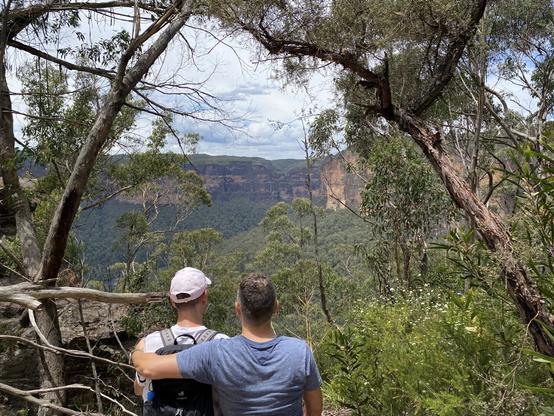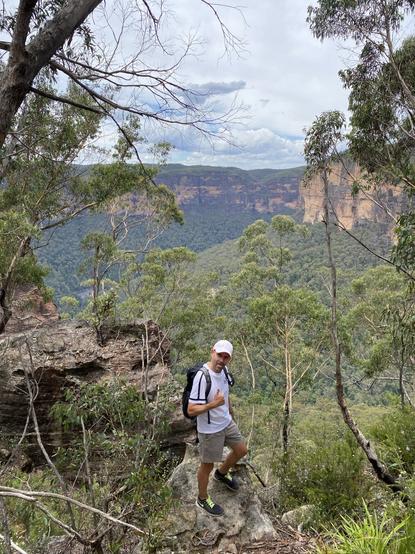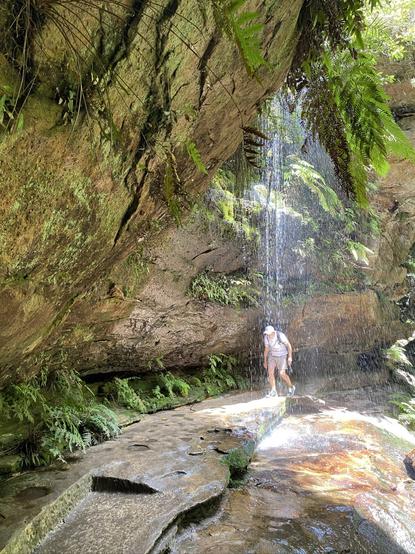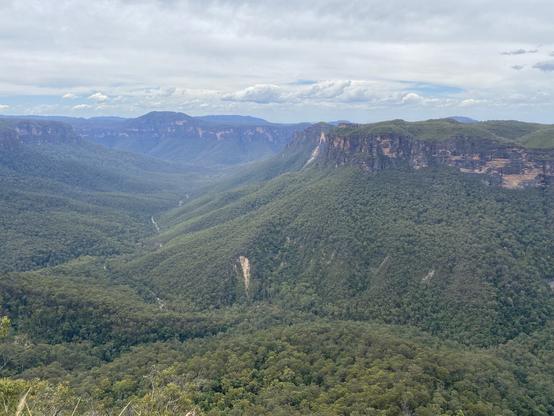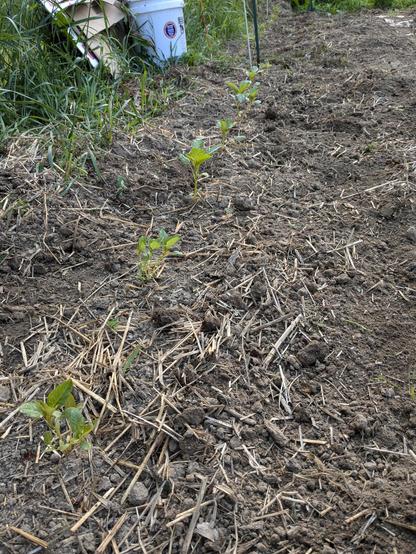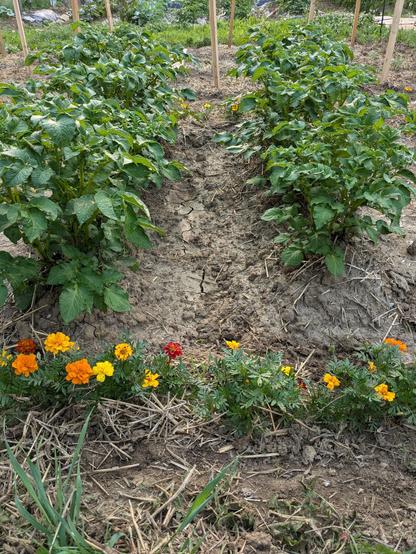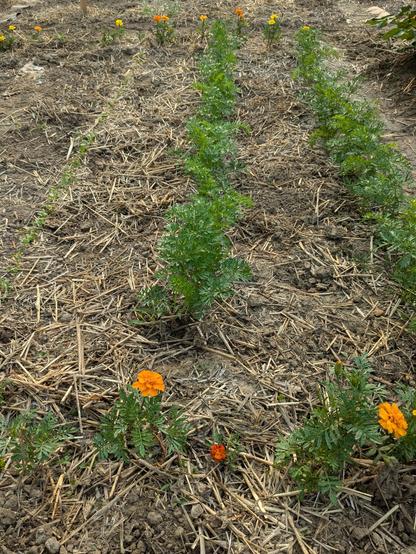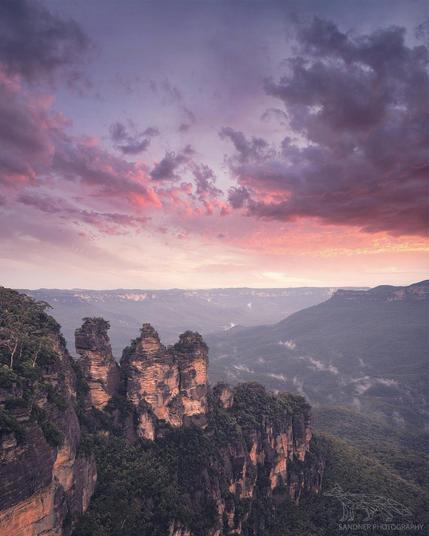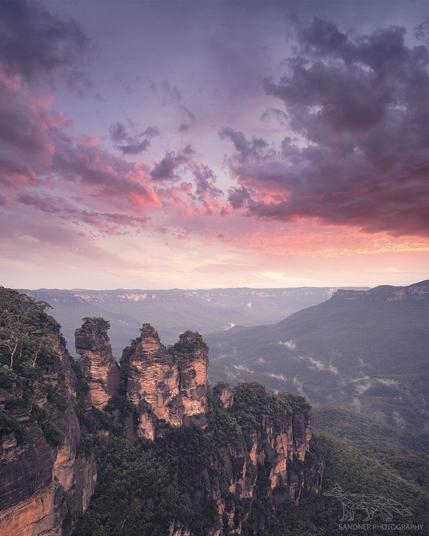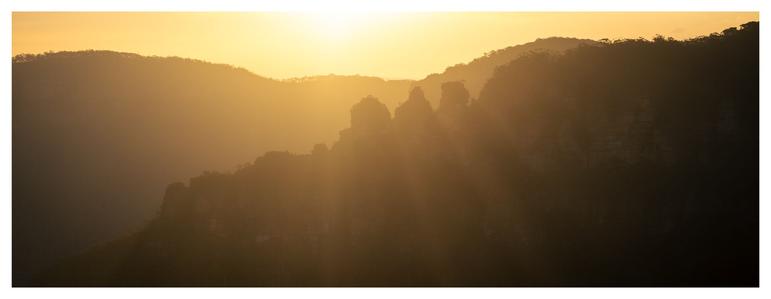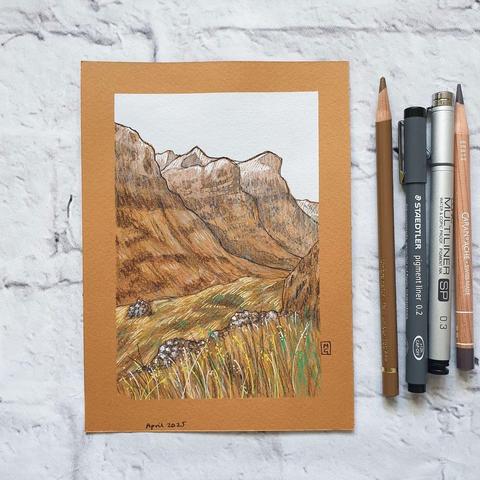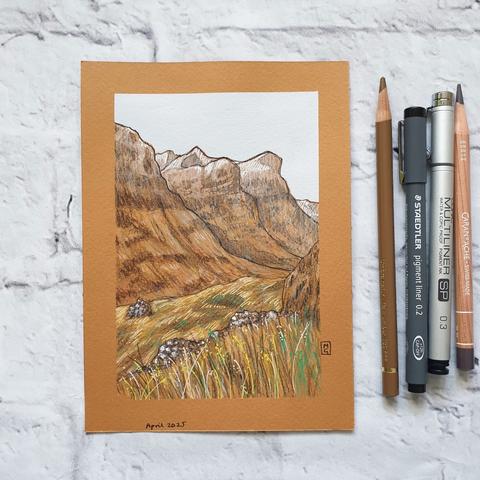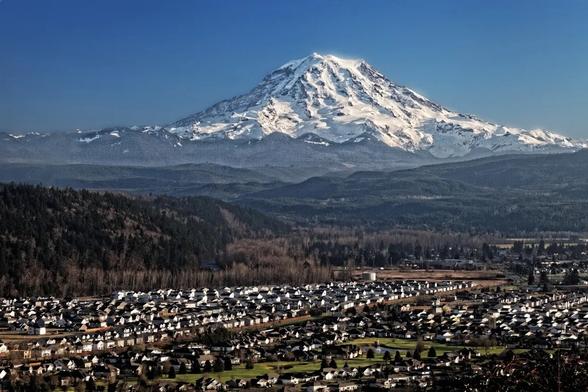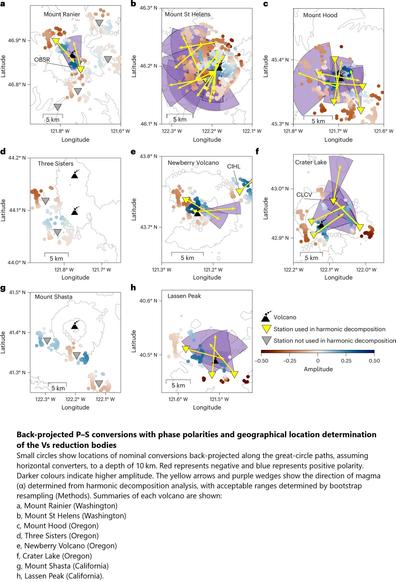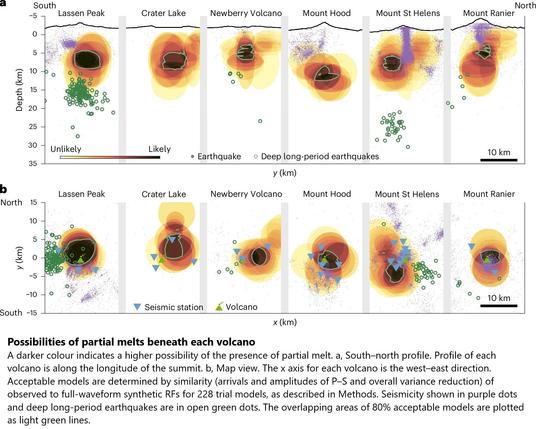#threesisters
My amaranth is happily growing! The black beans get planted as soon as the soil temp gets to 70F/21C. Then the squash go in 2 weeks later.
My potatoes are growing like gang-busters! They even have flowers already coming along. The marigolds are also doing very well. Seedling success!
The carrots are also doing well, and the parsnips have successfully sprouted and getting started. I'll be thinning them in about a week as well.
Sunset Glow over the Three Sisters, Blue Mountains
More about me and prints:
https://linktr.ee/steven.sandner
Graduated ND filter
Aperture f/11
ISO 100
1/15s
#ThreeSisters #BlueMountains #VisitNSW #Australia #Sunrise #LandscapePhotography #Nature #Katoomba
More about me and prints:
https://linktr.ee/steven.sandner
Graduated ND filter
Aperture f/11
ISO 100
1/15s
#ThreeSisters #BlueMountains #VisitNSW #Australia #Sunrise #LandscapePhotography #Nature #Katoomba
I came across this article while looking for how to plant #ThreeSisters (and #Sunflowers). Very informative! I learned that I should be planting my sunflowers in the north (makes sense, so they don't overshadow the corn). The article includes Zuni and Wampanoag garden designs!
The Three Sisters: Planting Corn, Beans, and Squash Together
By Melissa Breyer
Updated October 11, 2022
"The sisters are corn, pole beans, and squash (traditionally winter squash, but summer squash can work too). According to legend, notes the Almanac, 'the plants were a gift from the gods, always to be grown together, eaten together, and celebrated together.' "
https://www.treehugger.com/three-sisters-why-you-should-plant-corn-beans-and-squash-together-4857996
#SolarPunkSunday #Gardening #CompanionGardening #TraditionalKnowledge #TraditionalGardening #FoodSecurity
Getting to know our food, and how being good stewards of the land can help us eat better
by Katharine A. Jameson, Vermont Country magazine
03/01/2024
Excerpt: "Learning from the land
"Chief Stevens points out that it’s all in one’s perspective. He gives the example of #dandelions. 'You might look at them as a weed but I might look at them as a food source,' he explains, noting the wine and greens for which they’re used.
"When Europeans arrived in what they later named Vermont, they saw the lush #ForestGardens Natives had fostered, but didn’t recognize that it had been cultivated. 'The sophistication of the agriculture system was so high that people couldn’t see it at all. It just looked like abundant wild lands, but really they were so abundant because of our deep connection and long-term #stewardship of them,' #Abenaki tribal member, #JohnHunt describes in a new, short film posted to YouTube about Abenaki food systems.
"What can we learn from these growth practices? Professor Tiana Baca of Sterling College explains in this film: 'Nature doesn’t grow in #monocrops.' She notes that Native people’s lush gardens maximized yields by #CompanionPlanting crops like the #ThreeSisters. 'The three sisters is a companion planting group of corn, beans and squash. They’re plants that grow together and support each other. The corn is growing up, it’s providing this living trellis. The beans use that to climb on. The beans are then fixing nitrogen and supporting the growth of the corn and then the squash plant kind of sprawls out and creates this living mulch. All of them working together makes all of them produce better.'
"Respect runs deep in the Abenaki tradition. From the elders and ancestors from whom they learn to the food and animals they consume, they bless the animals they dispatch with tobacco and hold sacred the chain of custody of each of their seeds.
" 'We have to have some foresight about it. Treating the land with respect and not looking at it always through our need, but as a collective community need. In the old days we used to look at community more than individual needs.' Stevens discusses the Native mentality that land, contrary to the European way, is to be shared by all creatures, not owned.
" 'There is hope,' Chief Stevens says. 'There is a way to reconnect and change the outcomes of what is happening. But the only way to do that is to put the effort, time and resources into connecting with us, the native people and others to try to remember that historical knowledge of connection to our land, our animals and our wild food sources. The forests and the wild foods sustained our people for thousands of years. Why would we not think it wouldn’t do that now?'
"The Chief set out a few things we can all do to help save the planet."
https://vermontcountry.com/2024/03/01/abenaki-food-systems-native-stewardship/
#NativeAmericanHistory #NativeAmericanFood #FoodSovereignty #FoodForests #Stewardship #RelationshipToPlace #SolarpunkSunday #KnowWhereYourFoodComesFrom
Returning the ‘Three Sisters’—Corn, Beans and Squash—to Native American Farms Nourishes People, Land and Cultures
For centuries Native Americans intercropped corn, beans and squash because the plants thrived together. A new initiative is measuring health and social benefits from reuniting the “three sisters.”
by Christina Gish Hill
November 20, 2020
"Historians know that turkey and corn were part of the first Thanksgiving, when Wampanoag peoples shared a harvest meal with the pilgrims of Plymouth plantation in Massachusetts. And traditional Native American farming practices tell us that squash and beans likely were part of that 1621 dinner too.
"For centuries before Europeans reached North America, many Native Americans grew these foods together in one plot, along with the less familiar sunflower. They called the plants sisters to reflect how they thrived when they were cultivated together.
"Today three-quarters of Native Americans live off of reservations, mainly in urban areas. And nationwide, many Native American communities lack access to healthy food. As a scholar of Indigenous studies focusing on Native relationships with the land, I began to wonder why Native farming practices had declined and what benefits could emerge from bringing them back.
"To answer these questions, I am working with agronomist Marshall McDaniel, horticulturalist Ajay Nair, nutritionist Donna Winham and Native gardening projects in Iowa, Nebraska, Wisconsin and Minnesota. Our research project, 'Reuniting the Three Sisters,' explores what it means to be a responsible caretaker of the land from the perspective of peoples who have been balancing agricultural production with sustainability for hundreds of years.
Abundant Harvests
"Historically, Native people throughout the Americas bred indigenous plant varieties specific to the growing conditions of their homelands. They selected seeds for many different traits, such as flavor, texture and color.
"Native growers knew that planting corn, beans, squash and sunflowers together produced mutual benefits. Corn stalks created a trellis for beans to climb, and beans’ twining vines secured the corn in high winds. They also certainly observed that corn and bean plants growing together tended to be healthier than when raised separately. Today we know the reason: Bacteria living on bean plant roots pull nitrogen – an essential plant nutrient – from the air and convert it to a form that both beans and corn can use.
"Squash plants contributed by shading the ground with their broad leaves, preventing weeds from growing and retaining water in the soil. Heritage squash varieties also had spines that discouraged deer and raccoons from visiting the garden for a snack. And sunflowers planted around the edges of the garden created a natural fence, protecting other plants from wind and animals and attracting pollinators.
"Interplanting these agricultural sisters produced bountiful harvests that sustained large Native communities and spurred fruitful trade economies. The first Europeans who reached the Americas were shocked at the abundant food crops they found. My research is exploring how, 200 years ago, Native American agriculturalists around the Great Lakes and along the Missouri and Red rivers fed fur traders with their diverse vegetable products."
#IndigenousFood #NativeAmericanFood
#Decolonize #TraditionalFoods #TraditionalDiets #Reclaim #ThreeSisters
Toolkit for #NativeFoods in #Montana #SchoolMeal Programs
"This toolkit was created to help food service directors identify, procure, and successfully incorporate traditional, healthy foods into their breakfast and lunch programs. It is also a teaching tool to educate those interested in traditional foods about American Indian nations and tribal communities."
- Details on traditional foods of Montana
- Crediting information for common traditional foods
- Standardized recipes for food service directors to implement in their programs
#Recipes include:
- Little Gobblers
- Layered Enchilada Bake
- #ThreeSisters Salad
- Pumpkin Lentil Soup
- Bison Chili
- Maple Squash Bake
Learn more:
https://www.indigikitchen.com/traditional-foods-in-montana-schools/
#IndigenousFood #NativeAmericanFood
#SchoolLunches #IndigiKitchen
The Three Sisters of Glencoe are among the most iconic and breath taking sights in the Scottish Highlands.
My new drawing is available to buy...
https://theweeowlart.etsy.com/listing/1901146721
#FediGiftShop #ScottishArtist #MastoArt #CreativeToots
#Scotland #Glencoe #ThreeSisters #Mountains #Landscape #OriginalArt #Drawing #PenAndInk #ColourPencil #MixedMedia #Artwork #TraditionalArtist #ScottishArtist #GiftIdeas #ArtShop
@Nickiquote I'd rather be corn, beans and squash.
My new drawing is available to buy...
https://theweeowlart.etsy.com/listing/1901146721
#Scotland #Glencoe #ThreeSisters #Mountains #Landscape
#OriginalArt #Drawing #PenAndInk #ColourPencil #MixedMedia #Artwork #TraditionalArtist #ScottishArtist #GiftIdeas #ArtShop
Each tribe had cherished varieties—like the bean, prized for taste & nutrition. Beans were dried, stored, and shared. 🌾
💚 In many Native cultures, generosity was the sign of true abundance—not hoarding. Beans weren’t just food—they were symbols of solidarity.
#ThreeSisters #Beans #Indigenous #Wisdom #MutualAid #FoodSovereignty #Legumes #Native #Agriculture #Decolonize #Beans #CompanionPlanting
🌍 Embrace ancestral practices like companion planting to grow food that sustains both land and people.
#Beans #Legumes #ThreeSisters #Nitrogen #CompanionPlanting #IndigenousWisdom #NativePlants #Gardening #Food #Sovereignty #SoilHealth #PlantPower
https://n2s.altervista.org/blog/three-sisters-steam/
È disponibile gratuitamente su Steam, solo fino al 4 aprile alle 19, Three Sisters, un semplicistico RPG indie.
"When ancient wisdom beats modern industry - Rebecca Webster" #ThreeSisters #TEDed https://www.youtube.com/watch?v=pFRXY8bV_ug
A new Australian production of Anton Chekhov's Three Sisters at Theatre Works in Melbourne "will be loud and active and funny," says Dianne Toulson. #melbournetheatre #whatsonmelbourne #chekhov #ThreeSisters #australiantheatre @3CRMelbourne
Large Magma Bodies Found Beneath Dormant Volcanoes, Surprising Scientists
--
https://phys.org/news/2025-01-large-magma-bodies-beneath-dormant.html <-- shared technical article
--
https://doi.org/10.1038/s41561-024-01630-y <-- shared paper
--
#GIS #spatial #mapping #remotesensing #seismology #seismic #teleseismic #magma #volcano #vulcanism #geophysics #geophysical #geology #structuralgeology #crust #hotspot #PNW #PacificNorthwest #MountRainer #MountSaintHelens #eruption #dormant #Cascades #CascadeRange #spatialanalysis #spatiotemporal #MountHood #ThreeSisters #Oregon #Washington #California #NewberryVolcano #CraterLake #MountShasta #LassenPeak #partialmelt #model #modeling #seismicity #earthquake #risk #hazard #active #threat #monitoring #engineeringgeology #EarlyWarningSystem
@thomasb hah! :D we probably stood in the same spot on the #EchoPoint #ThreeSisters platform
